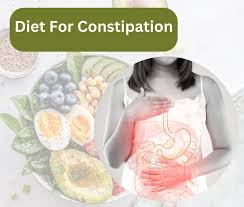High-Fiber Foods: Include plenty of fiber-rich foods in your diet, such as fruits, vegetables, whole grains, legumes, and nuts. Aim to consume at least 25-30 grams of fiber per day for women and 38 grams per day for men.
- Fruits: Apples, pears, berries, oranges, prunes, and figs
- Vegetables: Leafy greens, broccoli, Brussels sprouts, carrots, and sweet potatoes
- Whole Grains: Oats, whole wheat bread, brown rice, quinoa, and barley
- Legumes: Lentils, chickpeas, black beans, and split peas
- Nuts and Seeds: Almonds, chia seeds, flaxseeds, and pumpkin seeds
Stay Hydrated: Drink plenty of water throughout the day to keep your stools soft and easy to pass. Aim for at least 8-10 glasses of water per day, and more if you're physically active or in a hot climate.
Prunes and Prune Juice: Prunes are a natural laxative due to their high fiber and sorbitol content. Consuming prunes or drinking prune juice can help stimulate bowel movements and relieve constipation.
Healthy Fats: Include sources of healthy fats in your diet to help lubricate the intestines and promote regularity. Examples include avocados, nuts, seeds, and olive oil.
Probiotic Foods: Incorporate probiotic-rich foods into your diet to promote the growth of healthy gut bacteria and improve digestion. Examples include yogurt, kefir, sauerkraut, kimchi, and miso.
Limit Low-Fiber and Processed Foods: Minimize your intake of low-fiber and processed foods, as these can contribute to constipation. Examples include white bread, white rice, refined cereals, sugary snacks, and processed meats.
Regular Meal Times: Try to eat meals at regular times each day to establish a consistent routine for your digestive system. Eating breakfast can help stimulate bowel movements, as the digestive system is most active in the morning.
Physical Activity: Engage in regular physical activity, such as walking, jogging, swimming, or yoga, to help stimulate bowel movements and improve overall digestive health.
Limit Caffeine and Alcohol: Both caffeine and alcohol can have dehydrating effects, which can worsen constipation. Limit your intake of caffeinated beverages like coffee, tea, and soda, as well as alcoholic drinks.
Listen to Your Body: Pay attention to your body's signals and adjust your diet and lifestyle as needed to relieve constipation. If constipation persists despite dietary changes, consult with a healthcare professional for further evaluation and treatment.
Monday, June 3, 2024
Diet plan for constipation
A diet rich in fiber and hydration can help alleviate constipation by promoting regular bowel movements and improving overall digestive health. Here's a diet plan to help relieve constipation:
Subscribe to:
Post Comments (Atom)


No comments:
Post a Comment